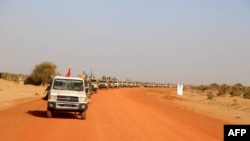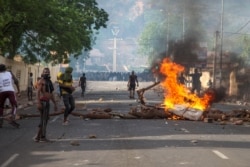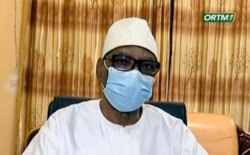Members of the Economic Community of West African States, or ECOWAS, shut down all their land and air borders with Mali on Wednesday after its president announced his resignation following a military mutiny. ECOWAS said in a statement that it will also halt trade relations with Mali.
The announcement was made in a statement released by ECOWAS from its headquarters in Nigeria after rebel soldiers seized and detained Mali's President, Ibrahim Boubacar Keita and his prime minister.
The regional body is also threatening stricter measures on trade with Mali but macroeconomic analyst Ken Ife says this will have negative repercussions on Mali’s economy.
“Closing the boarder is like the impossible thing you want to see happen, because you close the border, Mali is already an isolated country, land-locked country and it depends on all its imports. It doesn’t have a seaport so when you close the border, you’re actually shutting down the entire economy of Mali and that is not a situation anybody desires,” said Ife.
Escalating political turmoil had gripped Mali since June with Keita facing mass protests in Bamako demanding his resignation.
Opponents pointed to the failing economy, government corruption and a brutal jihadist conflict that has devastated Mali and its neighbors for several years.
Hours after he was released from military custody, Keita officially resigned from office and dissolved his parliament and said he does not want any bloodshed.
Jibrin Ibrahim, a senior fellow at the Center for Democracy and Development in Nigeria, said he is against the ECOWAS decision to close borders.
“I think I am even more worried about the failure of ECOWAS as the regional body to intervene effectively on the matter," he said. "They took a decision that they will not support the demands of the Malian people expressed through massive demonstrations for the president, Ibrahim Boubacar Keita, to step down.”
Ibrahim says the crisis will affect peace and stability in the Sahel.
“The current political crisis may exacerbate the security situation in the region. That’s the challenge, that’s the worry and that’s what we’ll seek solutions to,” he said.
In 2012, confusion in Mali following a coup d’etat resulted in al-Qaida-linked militant groups taking hold of the northern half of the country.
Mali was largely calm on Wednesday after Keita’s resignation. While ECOWAS is calling for more sanctions on the forces behind the Malian coup, military officers are forging ahead with plans to create a transitional government.







